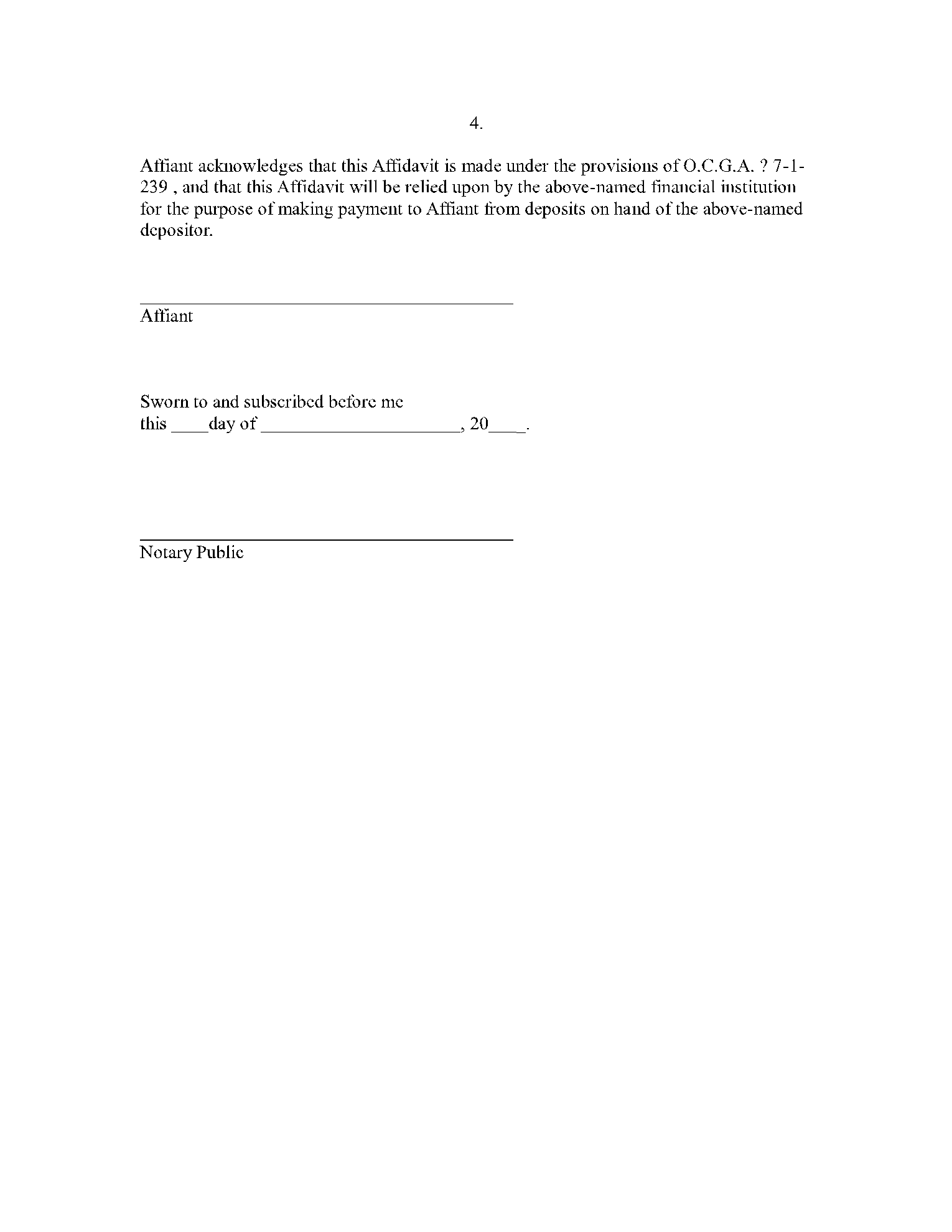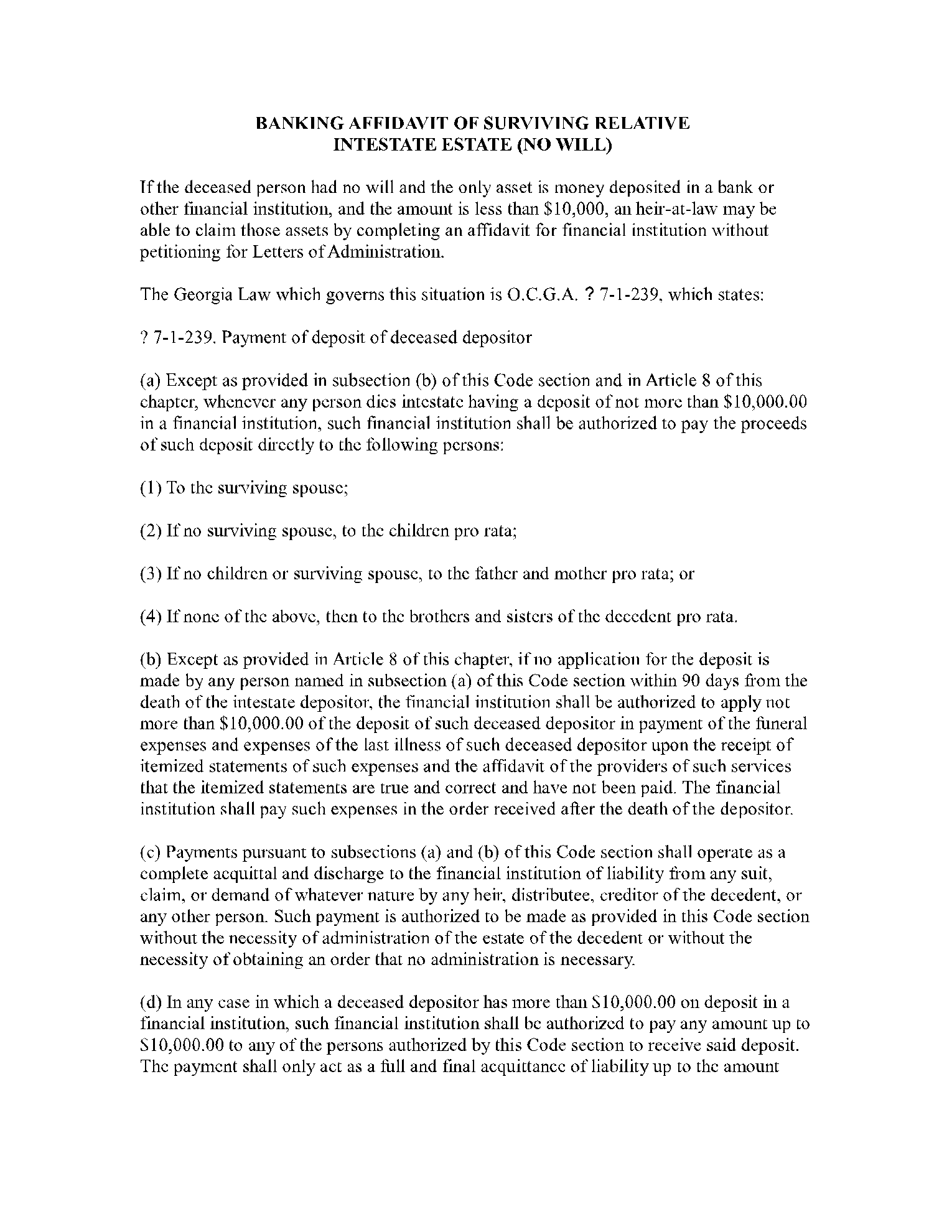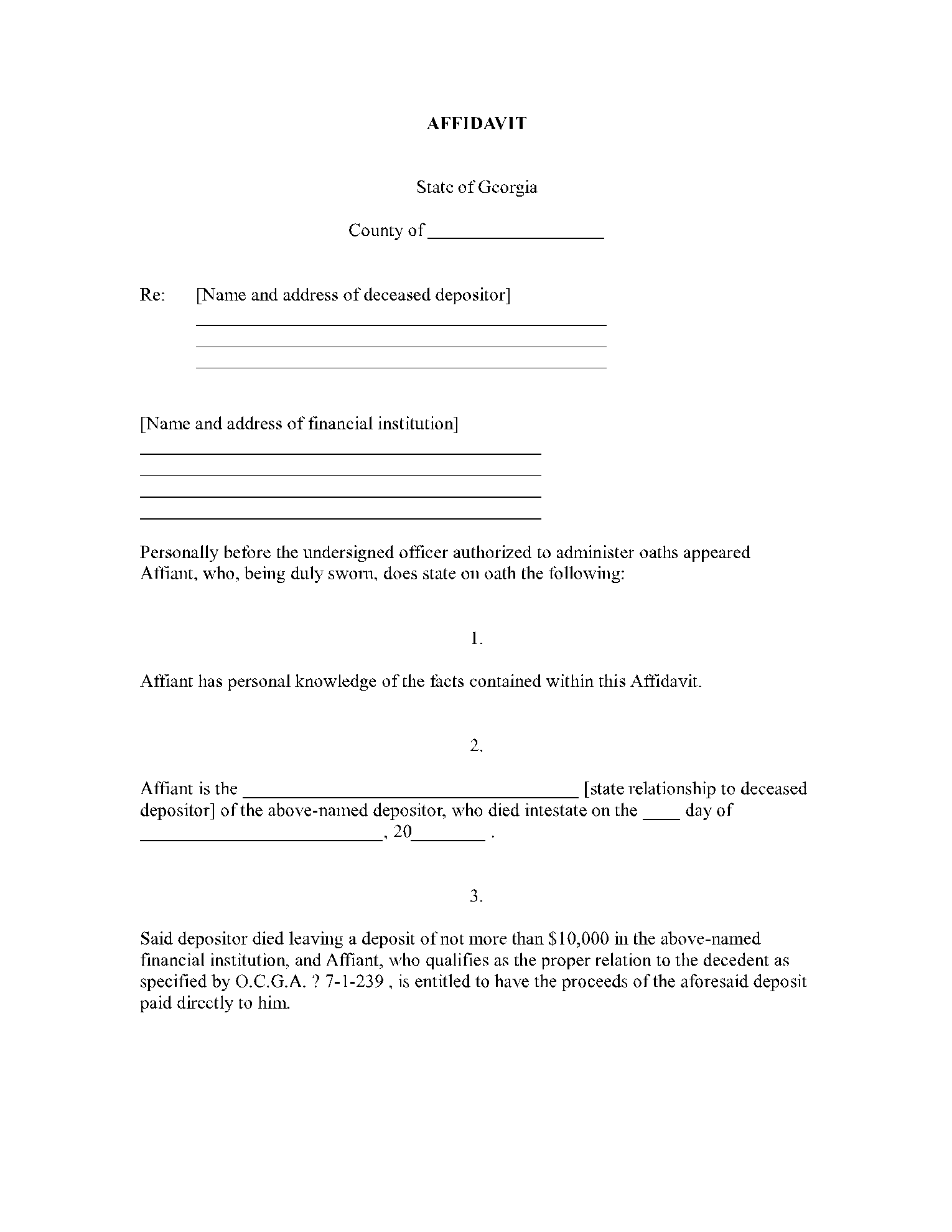The small estate affidavit in Georgia is termed the “petition for order declaring no administration necessary”. We cover everything you need to know about this affidavit in detail below. If you wish to directly fill out the small estate affidavit Georgia form, you can check above the page.
The following important key information has been added in the Georgia Small Estate Affidavit form.
-
- The name and address of the departed person
- Existence of will
- The departed person’s assets detail
- Debts of the deceased person
- Details of property holders with estate
- Details of property receivers
What Is a Georgia Small Estate Affidavit?
The Georgia small estate affidavit is a document you use to facilitate the distribution of a recently departed loved one’s assets. If you use such an affidavit, the loved one’s estate can be distributed without court administrative proceedings.
In Georgia, the small estate affidavit can be used only if there is no will available, and all heirs agree to the petition. It simplifies the distribution process and can save you time and money.
In case you wish to distribute money from a bank account, the total money should be $10,000 or less. The small estate affidavit used to transfer money is known as the Banking Affidavit of Surviving Relative Intestate Estate (No Will).
You also have the option to petition for simplified estate proceedings instead. You can ask for the entire estate to be released without administration. There is no upper limit in Georgia for how much estate you can transfer without administration.
Requirements for Filing a Small Estate Affidavit in Georgia?
Here are the requirements for using a small estate affidavit – Banking Affidavit of Surviving Relative Intestate Estate (No Will):
- There must be no will left behind.
- The amount of money in the bank account must be $10,000 or less.
- Lawful successors are applying, in the determined order – spouse, children, parents, and brothers and sisters.
The section related to banking accounts in the Georgia code is § 7-1-239. The requirements for petitioning for simplified estate proceedings are different:
- All heirs must agree on how to divide the estate.
- If there are debts against the estate, creditors must agree to the simplified proceeding.
- There must be no will.
Take a look at the full law – § 53-2-40 – here for additional requirements. When in doubt, consult with an attorney.
When Do I Need to File a Georgia Small Estate Affidavit?
There are multiple scenarios when you should file for a Georgia small estate affidavit:
- The decedent has left no will behind.
- You and your family wish to avoid lengthy estate distribution administration proceedings.
- You want to save time and money.
- Your wish to access money from the decedent’s bank account that is $10,000 or less in value.
How Do I File a Georgia Small Estate Affidavit?
Below are the general steps to follow:
- Fill in the requisite form.
- Make sure you provide the personal and real property details.
- Indicate the status of the decedent’s debts.
- Get the other heirs to sign off on the distribution.
- Attach any supporting documents.
- You may need to complete a verification page in front of a notary.
- Sign the document in front of the probate clerk.
- Pay the filing fees at the probate clerk’s office and submit the form.
- Complete any notices requirements the court informs you about.
If the court approves, it will issue an order. You can then distribute the assets among the heirs.
Conclusion
If the other heirs don’t agree to the distribution or there are other problems, a full-court administration will be required. It’s in your best interest to use the small estate affidavit in Georgia when possible, though. It could save you time and money.
Use our Georgia small estate affidavit forms to begin the filing process. CocoSign provides a range of free professional templates and other helpful resources for formal document creation on our website.



